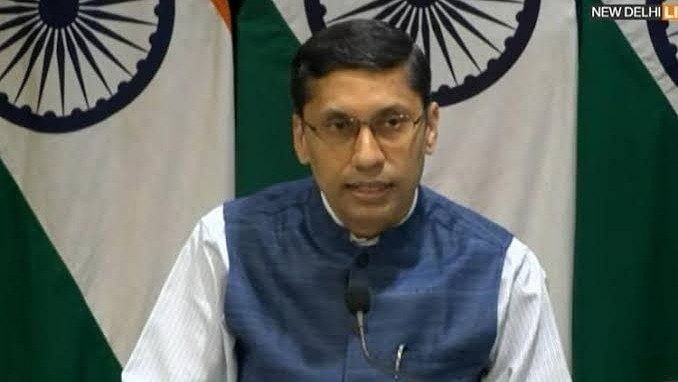
A day after Beijing objected to a joint war drill by India and the United States in the Himalayas, New Delhi brushed aside the demurs of the neighbouring country, stating not-so-subtly that no third country could dictate whom and where it would hold military exercise with.
New Delhi also countered Beijing’s allegations that India had violated its 1993 and 1996 agreements with China by holding the ‘Yudh Abhyas’ military drill with the United States close to its Line of Actual Control (LAC) with the communist country at Auli in Uttarakhand. Arindam Bagchi, the spokesperson of the Ministry of External Affairs, told journalists in New Delhi that Beijing should rather reflect on its own breach of the 1993 and 1996 agreements inked by India and China to maintain peace and tranquillity along the disputed boundary between the two neighbours pending the final settlement of the row.
Bagchi said that India’s joint military exercise with the US in Auli had nothing to do with the 1993 and 1996 agreements with China. “But since these were raised by the Chinese side, I must emphasise that the Chinese side needs to reflect and think about its own breach of the agreements of 1993 and 1996,” the MEA spokesperson said.
He was replying to a question by a journalist on New Delhi’s reaction to Beijing’s allegation that India had violated the spirit of its 1993 and 1996 agreements with China by conducting a joint military drill with the US so close to the LAC. “It does not help build bilateral trust,” Zhao Lijian, a spokesperson of the Ministry of Foreign Affairs of the Chinese Government, had said in Beijing on Wednesday, adding: “China has expressed concerns to the Indian side over the military exercise.”
New Delhi too has been citing the same 1993 and 1996 agreements over the past two-and-a-half years, protesting Beijing’s bid to change the status quo along the India-China LAC by deploying a large number of troops of the Chinese People’s Liberation Army (PLA) so close to it in April-May 2020. The Indian Army too had to deploy additional troops to resist the Chinese PLA’s move to push the LAC westward. This resulted in a stand-off, which could not be completely resolved so far.
“India exercises with whomever it chooses to and it does not give a veto to third countries on these issues," Bagchi, the MEA spokesperson, said.
The 1993 and 1996 agreements required both sides to refrain from amassing large numbers of troops in the border areas, to strictly abide by and respect the LAC and to avoid taking any unilateral action to alter it.
